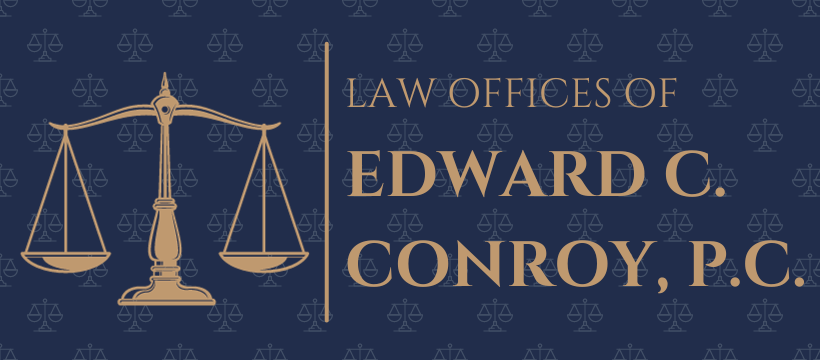Lawyers said a new law that will eliminate the requirement of filing entire trust documents in real-estate matters will help ease administrative headaches and protect their clients’ privacy.
The new law, effective immediately, allows attorneys to record simply a trustee certificate at the Registry of Deeds when a property interest is owned by a trust, instead of the full document.
Real estate attorneys said that the old requirement of filing entire trust documents was burdensome because trusts can be hundreds of pages even though, for real estate purposes, only a few key provisions are needed.
Estate planners lamented the fact that their clients lost some of the privacy advantages normally offered by trusts because of the requirement that the documents be made public. In order to keep trusts private, attorneys had to create secondary documents such as real estate nominee trusts, on order to protect the documents sensitive provisions.
But now, under the new law, there is a consensus that conveyancers, estate planners and their clients will experience a less complicated set of requirements that will simplify their objectives and retain privacy.
Massachusetts was apparently one of the only states in the country that required entire trust documents to be filed, and attorneys said that this new bill brings the commonwealth in line with other jurisdictions, which should help ease transactions involving out-of-state entities with real estate interests in Massachusetts.
Some attorneys also said that the state’s registries of deeds, currently experiencing a financial crisi, would be aided by this new law. Without the necessary funding to print books, the registries will be somewhat helped now that multiple page trust documents can be reduced to one or two page certificates.
Simple Certificate
Under the new law, a certificate may be filed at the Registry of Deeds, instead of the full trust document, as long as it contains the following information:
•The identity of the trustees or the beneficiaries in the trust;
•The trustees’ authority to act with respect to the real estate owned by the trust; and
•A certification that “the existence or nonexistence of a fact which constitutes a condition precedent to acts by the trustees or which are in any other manner germane to affairs of the trust, shall be binding on all trustees and the trust estate in favor of a purchaser or other person relying in good faith on the certification.”
A trustees certificate containing the above information “the existence or nonexistence of a fact which constitutes a condition precedent to acts by the trustees or which are in any other manner germane to affairs of the trust, shall be binding on all trustees and the trust estate in favor of a purchaser or other person relying in good faith on the certification.”
A trustees certificate containing the above information “shall be equivalent to actual notice to every person claiming under a conveyance, attachment or execution thereafter made or levied.”
The new statute indicates that “the certificate most recently recorded in the registry of deeds for the county or district in which the real estate lies shall control.”
The bill was passed by both houses and signed by then-Gov. Jane M. Swift on Jan. 1, and was declared to be an “emergency law” effective immediately.
Echoing the sentiment expressed by many attorneys, Diane C. Tillotson of Boston, the Massachusetts Bar Association’s Property Committee co-chair, said, “It’s so non-conventional that I can’t believe it’s taken so long to go through.”
Janet M. Smith of Boston, a trusts and estates attorney, was credited by others as one of the attorneys who spearheaded the movement behind the bill for the last 10 years in conjunction with the Massachusetts Conveyancers Association.
Both she and Daniel J. Ossoff of Boston, the chair of the Legislation Committee of the MCA, said that an informal poll of other states’ practices concerning this issue conducted by the MCA showed that Massachusetts was the last state to require full trust documents to be recorded.
Smith said that she believed the results of that poll were what finally got the trustee certificate initiative passed.
Transactions Simplified
Attorneys expressed relief at the passage of the bill because it simplifies what once was a tedious, and some thought unnecessary, step in a real estate transaction involving trusts.
“This bill will allow attorneys to just record a certificate stating who the trustees are and other germane provisions of the trust,” said Ossoff. “It will simplify life for the real estate practitioner, just as it will for the estate planning practitioner.”
Real estate practitioners said that the biggest benefits to being able to file trustees certificates instead of entire trust documents are the savings in time and money.
The “old” way of recording trusts that had an interest in property was too cumbersome, attorneys said, especially with the larger trusts common today.
“In order to comply with the indefinite reference statute, you had to record the entire trust instrument,” explained Tillotson. “As our cases have become more and more complex, trust instruments have become longer and longer.”
She said that the net result was having to record potentially hundreds of pages of a trust when only two or three pages really applied to the real estate transaction.
Richard Keshian, the new president of the Massachusetts Conveyancers Association, said that the bill “will relieve the conveyancing attorney of the burden of having to go through an incredibly long document that serves a tax or estate planning purpose just to see if the trustees have the right to sell the property.”
For attorneys and their clients, Tillotson said filing the trustees certificates “will (also) be less expensive.”
Less paper could also be a benefit for the state registries of deeds, according to some attorneys, which have been hit hard by a budget crisis and have not been able to print books,
Ossoff said: In the current economic environment, anything we can do to lessen the paper is a benefit.”
Tillotson said that it should also help with spacing concerns at the registries of deeds, as well as cut down on the number of pages that have to be electronically scanned for online or microfilm imaging.
Privacy Strengthened
Trusts and estates lawyers also signaled their approval for the bill because it will make estate planning easier for them and more understandable for their clients.
In the past, real estate nominee trusts were used to protect the privacy of regular trusts that held interests in real estate.
But now, estate planners said, the new law could make the real estate nominee trust obsolete in situations where they were once used to protect the privacy of a trust involving real estate.
“It really allows people to have real estate held in trust without sacrificing the privacy of their personal estate planning documents or complicating the transaction by having an additional layer (real estate) nominee trust,” said Smith.
However, she said nominee trusts will still probably be used in the business context or for making installment gifts of real estate.
John H. Slymer of Boston, a trusts and estates attorney, said that the law should come as a relief to his clients who had trouble understanding the need for an “extra” trust in order to protect the main trust’s privacy.
“The nominee realty trust was a concept that was really foreign to them – a six to 10 page trust instrument that has no function,” he said. “But they understand very well that they do not want to have this trust on public record.”
Smith related to her colleagues’ remarks and said that when talking to her clients about nominee trusts, “Their eyes would glaze over when we got to that point.”
Clymer said: “This is going to make estate planning simpler, more understandable and less expensive for clients.”
The day-to-day work of an estate planner could also be simplified, according to some estate planning attorneys.
“This allows you to do planning for your client without worrying about what information is being recorded,” said Angela M. Kalivas of Boston, “You’re able to focus on the clients’ needs without altering their estate plan for the sake of privacy.”
Clymer agreed and said that the simpler process will be easier to communicate to clients. “That builds better attorney-client relationships,” the veteran estate planner said. “When lawyers do things in a way clients can understand, I think clients are happier and they feel much more in control of the process.”

